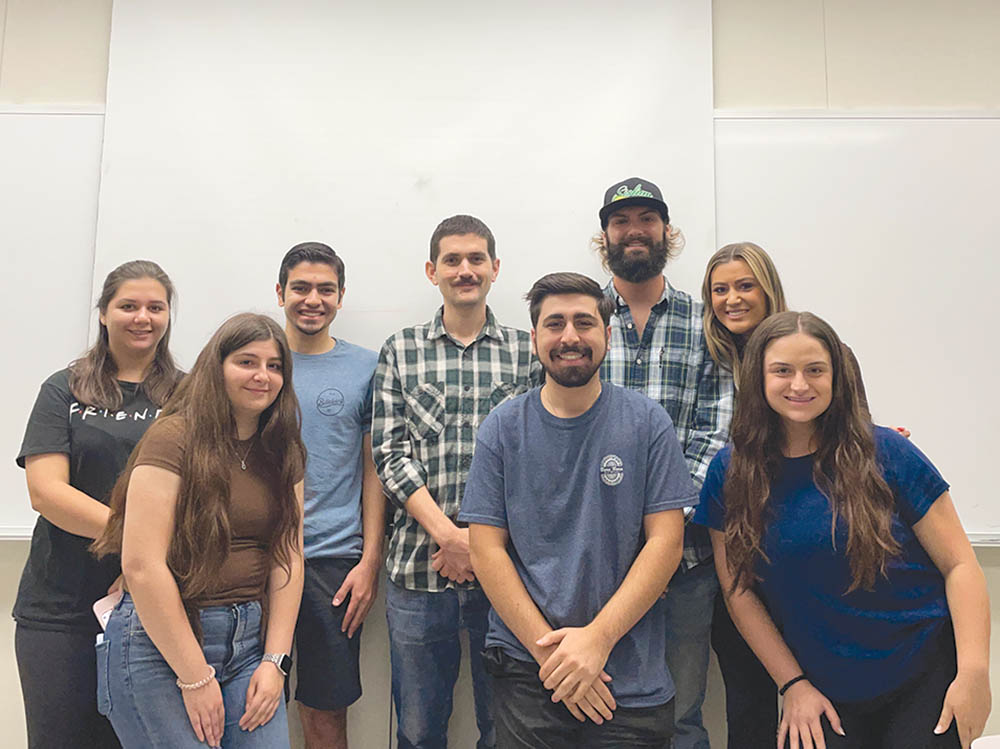
Andrew Hagopian
Editor
“I could feel that some of them [students] at least were surprised, to really hear about the history and present-day conditions of Armenians remaining in Turkey. And this is not uncommon. This is not specific to Fresno Armenians or Armenians in the United States. It is a global phenomenon,” said Dr. Hrag Papazian.
Dr. Papazian, who is the 19th Henry S. Khanzadian Kazan Visiting Professor in Armenian Studies at Fresno State, taught a course this Fall entitled “From Genocide to Post-Genocide Experience: Armenians under Late Ottoman and Turkish Republican Rule.”
Dr. Papazian’s course examined the history of the Armenian Genocide in the late Ottoman period and explored the fate of survivors who remained in the emerging Republic of Turkey. Stretching from the late 19th century to contemporary times, the class was comprised of three modules. In the first module, students were introduced to important concepts in Genocide Studies and learned about the Armenian Genocide. Within the first five weeks of the class, Dr. Papazian provided students with extensive resources and informative class lectures, focusing on the Armenian Genocide and all that led up to it including the Hamidian and Adana Massacres.
Dr. Papazian emphasized the fact that after social reforms applying to non-Muslim minorities were implemented in different parts of the Ottoman Empire, Armenians faced greater discrimination, acts of violence, and unfair taxation.
In the second module, the focus of study was on the history of the Armenians in post-Genocide Turkey during the period of the Turkish Republic. In the final module, the class focused on the more recent and contemporary periods, looking into the politicization and diversification of Armenian identity in the country during the past few decades. This part of the class covered the recent public emergence of Muslim and Alevi Armenians and the arrival of immigrants from neighboring Armenia to Istanbul, and also examining their relations with the traditional Christian Armenian community. This information was based on Dr. Papazian’s doctoral research on Armenians in contemporary Turkey, where he lived for two years for his field research.
Each student had the opportunity to lead a class discussion, based on a chapter from Raymond Kevorkian’s The Armenian Genocide: A Complete History. Students chose different Armenian vilayets [provinces] within the Ottoman Empire and presented the deportation processes for Armenians in specific regions including the historic Armenian provinces of Erzurum, Bitlis, Diyarbekir, Trebizond, Kharpert, Sivas, and Van.
“As an early career academic, I want to develop and diversify my university teaching experience as much as possible, and I believe the Kazan Visiting Professorship is a great opportunity in this regard,” said Dr. Papazian. “I am certain that being at Fresno State, which has a well-established Armenian Studies Program, and being in Fresno, which has a historical Armenian community, will definitely make my experience even more meaningful and rewarding.”
Dr. Papazian was engaging and connected with all the students throughout the entirety of the course. “Some comparisons or parallels that were brought up in class or outside class with discussions with students about the course content were quite interesting and new to me as well, especially in Fresno,” affirmed Dr. Papazian.
Dr. Papazian expressed how it was interesting to learn the history of how the Armenian community of Fresno was established and how Fresno Armenians preserved aspects of Armenian culture which are unique.
“It was interesting to see that some people who came from those lands brought with them some cultural elements that seem to have survived in contrast to other Armenian Diasporic communities elsewhere,” stated Dr. Papazian.
Outside of the classroom, Dr. Papazian has enjoyed his stay in Fresno, exploring the rich Armenian history within the San Joaquin Valley and meeting many wonderful people.
 Hye Sharzhoom Armenian Action
Hye Sharzhoom Armenian Action